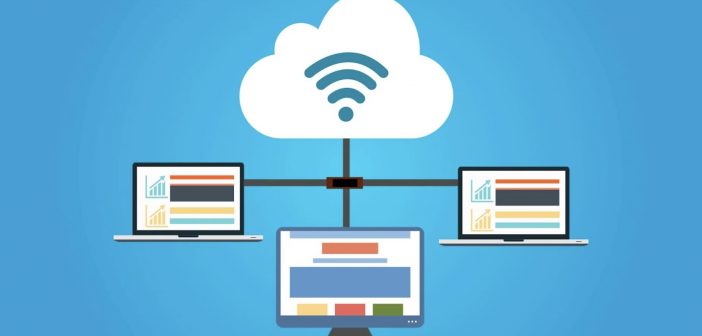In today’s highly competitive market, it has become essential for businesses of all sizes to have a reliable and efficient system in place to manage their operations. An Enterprise Resource Planning (ERP) system is the central nervous system for managing business processes across various departments. With the help of integrated software applications, an ERP system ensures that information flows seamlessly between functions like accounting, inventory, sales, and human resources, providing a unified source of truth for your company’s data. In this guide, we will explore the benefits of an ERP system and how it can positively impact your business.
1. Streamlined Operations and Processes
Streamlining operations and processes is a primary benefit of incorporating an ERP system into your business. By switching your ERP solutions to the cloud with gotomyerp, you can eliminate the need for multiple software systems and manual data entry. It effectively eliminates data silos by integrating all departments, ensuring that every team works with the same, up-to-date information.
This cohesion reduces the risk of errors from manual data entry and helps make more informed decisions faster. Moreover, it enhances workflow and productivity by minimizing bottlenecks and simplifying complex processes. Ultimately, an ERP system allows for smoother internal processes, boosting efficiency and productivity across the organization.
2. Real-Time Data Insights
Real-time data insights stand as a critical advantage of implementing an ERP system. With data updating instantly, businesses can react swiftly to market changes, inventory needs, and customer demands. This level of agility ensures that decision-makers always have access to the most current information, leading to stronger, evidence-based strategies.
Furthermore, it mitigates risks by enabling the early detection of issues and trends that could impact operations. Monitoring business performance with real-time analytics also allows for clear visibility into every aspect of the business, empowering teams to focus on areas that may require improvement. Having real-time data at your fingertips can lead to better business outcomes and a notable competitive edge.
3. Increased Data Security
In today’s digital landscape, data security is a top concern for businesses of all sizes. An ERP system provides robust security measures to protect sensitive business information from cyber threats and unauthorized access. With strict user permissions, role-based access control, and secure cloud storage, an ERP system ensures that only authorized individuals can access specific data.

Having all your critical business data stored in a centralized system reduces the risk of data loss due to hardware failures or human error. Additionally, with regular backups and disaster recovery plans, an ERP system offers peace of mind that your business’s information is safe and secure.
4. Enhanced Collaboration and Communication
Enhanced collaboration and communication are essential benefits of an ERP system, as they break down silos between departments and improve the synergy within a business. With an ERP platform, information is readily shared and accessible, eliminating the delays and miscommunications commonly occurring when departments operate in isolation. This transparency fosters a cohesive team environment where everyone is informed and aligned with business objectives.
Real-time updates and a centralized database allow teams to work together efficiently, regardless of whether they’re located in the same office or spread across the globe. Additionally, this integration simplifies project management and tracking, as team members can easily see the status of tasks and collaborate on documents in a unified system. Consequently, an ERP system improves the flow of information and reinforces a culture of unity and teamwork within an organization.
5. Better Decision Making and Planning
An ERP system gives businesses real-time access to accurate data, empowering leaders to make informed decisions and drive the business forward. With comprehensive reporting capabilities, it generates insights into sales, inventory, customer behavior, and more. This visibility enables a deeper understanding of the business’s health and identifies areas for improvement.
Moreover, an ERP system’s forecasting and planning tools allow businesses to anticipate future demand, manage inventory levels, and optimize resources effectively. By providing decision-makers with a holistic view of the business’s operations, an ERP system enables them to make informed decisions that align with long-term goals and drive growth.
6. Enhanced Customer Experience
An ERP system integrates company departments, enhancing communication and collaboration. It ensures accurate inventory management, efficient order processing, and prompt product delivery for improved customer satisfaction and loyalty. Additionally, it empowers support teams with quick access to client information for better customer service and issue resolution.
A consolidated view of customer interactions ensures a personalized and cohesive experience for every client. Analytics provided by ERP systems helps companies anticipate customer needs and tailor their offerings accordingly. This proactive approach to customer relations fosters a positive reputation and can lead to increased business through referrals and repeat clients.
An ERP system is a substantial but worthwhile investment for modern businesses seeking to streamline operations, improve data accessibility, and facilitate better decision-making. Though complex, the implementation process is manageable with careful planning, a clear strategy, and a commitment to thorough training and support. Your business can look forward to greater efficiency, productivity, and success with the right ERP.




